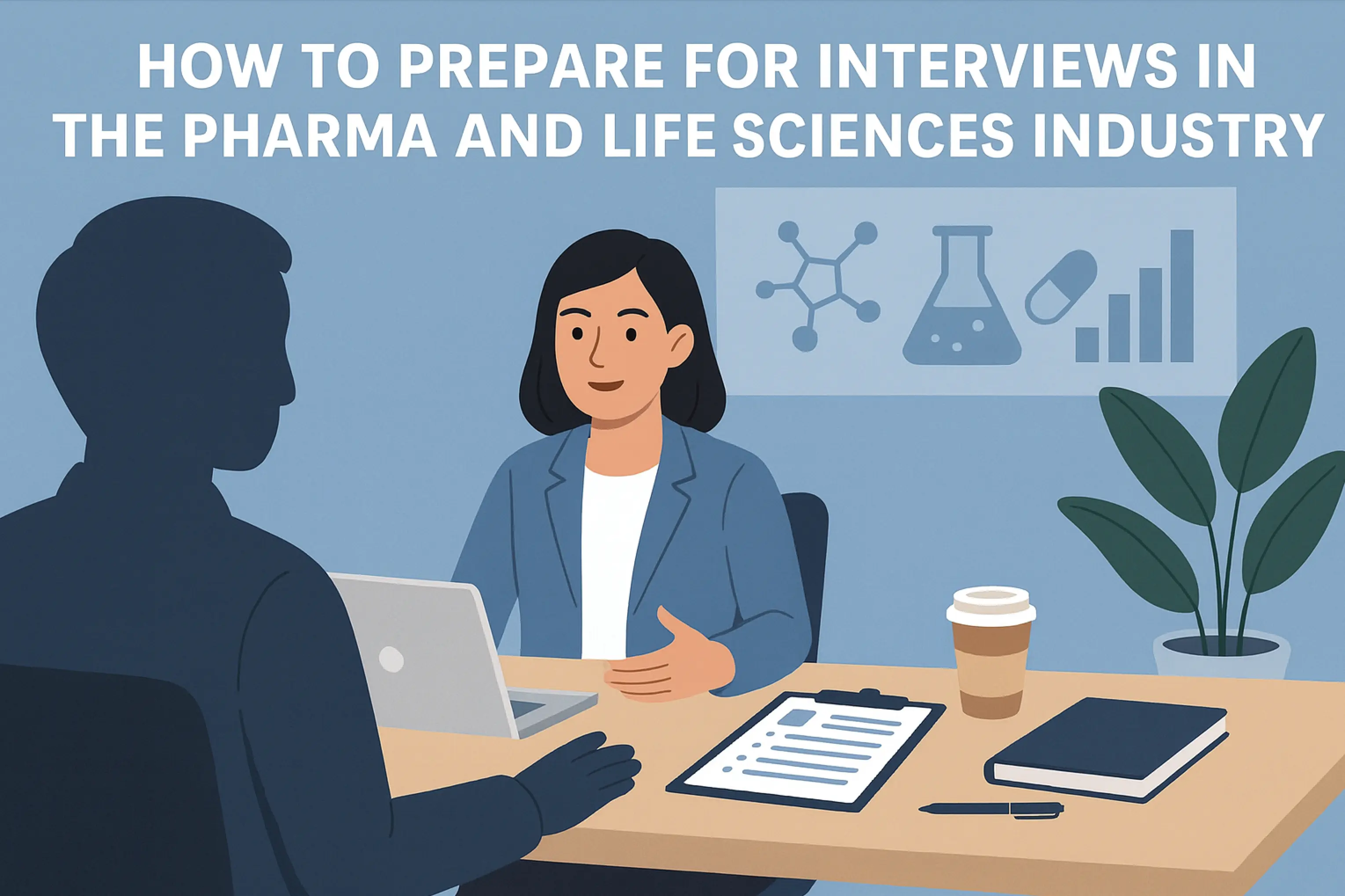How to Negotiate Your Salary in the Pharmaceutical and Life Science Industry
The life sciences and pharmaceutical sectors have been at the centre of innovation in recent years. From mRNA vaccines to personalised medicine and digital therapeutics, companies are competing to attract scientists, engineers, regulatory experts and data specialists. Negotiating a job offer in this space means recognising both your unique value and the nuances of a regulated, research-driven industry. This guide will help you prepare for negotiations, work effectively with recruiters and handle counter-offers, while sprinkling in tips tailored for pharma and biotech roles.
Preparing to Negotiate
Know Your Worth in a Scientific Context
In an industry where expertise can directly influence patient outcomes, your technical and regulatory skills carry significant weight. Before you negotiate:
- Catalogue specialised skills and certifications. In addition to your years of experience, note any GxP compliance training, clinical trial expertise, regulatory affairs certificates or technical proficiencies (e.g., bioinformatics, mass spectrometry, machine learning for drug discovery). These credentials can justify a higher salary because they are in demand across pharma and biotech.
- Quantify your impact. Highlight past accomplishments such as successful Investigational New Drug (IND) submissions, accelerated clinical trial timelines, cost savings from process optimisation or publications in high-impact journals. Linking your contributions to tangible outcomes demonstrates the return on investment you bring to an employer.
- Research industry benchmarks. Use salary guides specific to life sciences and biotech resources like BioSpace, Surf Search’s life sciences salary guide and LinkedIn Salary offer insights tailored to your niche. Factor in region, company size (start-up vs. multinational) and the type of role (research, regulatory, data science, manufacturing) when setting your range.
Understand Compensation Structures
Pharmaceutical and biotech companies often structure compensation differently from technology firms:
- Base salary + annual bonus: Many large pharma firms offer moderate base salaries with performance bonuses typically tied to company and individual metrics. Understand the typical bonus percentage in your segment (e.g., 12–15 % at some established pharma companies) so you can evaluate the whole package.
- Equity or stock options: Late-stage biotech start-ups and some big pharma companies grant Restricted Stock Units (RSUs) or stock options. RSUs represent actual shares that vest over time, whereas stock options give you the right to purchase shares at a discount. Clarify the vesting schedule and evaluate the potential long-term value.
- Benefits and perks: Life sciences employers often provide generous benefits such as tuition reimbursement for advanced degrees, funding for scientific conferences, and professional-development allowances. These perks can be as valuable as cash, especially for scientists committed to continual learning.
Identify Your Priorities
Decide what matters most for your career and personal life. Many life-science professionals prioritise:
- Cutting-edge research opportunities and access to state-of-the-art facilities. Working on breakthrough projects can be more rewarding than a slightly higher salary.
- Work-life balance in a regulated environment. Clinical trials and manufacturing follow strict timelines. Flexible hours, remote work options or compressed work weeks can be invaluable.
- Support for professional growth and certifications. Ask whether the employer funds attendance at industry conferences like BIO or DIA or supports additional training in areas like bioinformatics or regulatory affairs.
Plan and Practise
Prepare talking points that link your unique qualifications to the organisation’s needs. Practise your negotiation with a mentor or peer in the industry, focusing on clear, confident delivery. Being prepared reduces the likelihood of over-explaining and helps you stay focused on your key messages.
Dos and Don’ts of Negotiating a Life-Science Job Offer
Dos
Don’ts
Working with Recruiters in Pharma and Biotech
Recruiters in the life sciences industry can be invaluable because they understand the sector’s specialised roles and compensation structures. However, remember that they ultimately serve the employer. To make the most of these partnerships:
- Be transparent about your goals and constraints. Share your salary expectations, desired benefits (e.g., conference travel, continuing education) and any non-negotiables such as visa sponsorship or flexible working arrangements. This helps recruiters match you with the right opportunities.
- Ask for industry insights. Recruiters often know salary bands, market demand for niche skills (e.g., cell and gene therapy experience) and the reputations of hiring managers. Their guidance can help you craft a strong counter-offer.
- Communicate your priorities beyond pay. Let recruiters know if you value working on novel drug modalities, remote work, or access to advanced laboratory equipment. This allows them to advocate for perks that matter to you.
- Be patient and flexible. Negotiations in regulated industries may require multiple approvals (e.g., from HR, finance and legal departments). Recognise that recruiters may need time to get answers.
- Maintain professionalism and relationships. Express appreciation for the recruiter’s efforts, even if you decline an offer. Staying on good terms may lead to future opportunities as new research programs launch.
Cautions When Dealing with Recruiters
- Don’t share numbers too soon. Keep your salary history and desired range private until you have an offer. This ensures you remain flexible and maintain leverage.
- Remember their incentives. Recruiters are rewarded for closing roles quickly, not necessarily for maximising your pay. Use them as advisors but advocate for yourself.
Handling Counter-Offers from Your Current Employer
Pharma and biotech employers may offer incentives to retain top talent when you resign. While flattering, consider these points before accepting:
- Counter-offers are often temporary fixes. If you were seeking new opportunities due to stagnant research, lack of growth or cultural misalignment, a pay increase may not resolve those issues.
- Perceptions of loyalty. Accepting a counter-offer can signal to leadership that you were ready to leave. This might limit future promotions or high-impact projects.
- Future raises may be affected. Companies sometimes use counter-offers to pre-pay future increases. Ask whether the raise is an early salary review or an additional adjustment.
Evaluating a Counter-Offer
- Take your time. Request a day or two to review the offer and meet with your manager to understand their motives. Are they genuinely committed to addressing the concerns that led you to look elsewhere?
- Compare holistically. Weigh your current company’s offer against the new role in terms of research opportunities, culture, career growth and compensation. Which environment aligns better with your long-term goals in life sciences?
- Consult trusted advisors. Talk with mentors, industry peers or your recruiter about the pros and cons. They can provide objective insights about potential career trajectories.
- Reflect on why you wanted to leave. Whether you sought more innovative projects, better work-life balance or stronger leadership, ensure the counter-offer addresses those motivations. Trust your instincts if something feels off.
- Communicate your decision clearly. Once you’ve made up your mind, inform both your current and prospective employers promptly and professionally.
Countering a Low Offer from a New Employer
If your biotech or pharma offer is below expectations, you can counter by:
- Asking about salary flexibility now or after hitting milestones. Some companies tie increases to successful clinical phases or regulatory approvals.
- Exploring non-salary benefits. Request support for professional society memberships, conference attendance, or additional stock options if salary cannot increase.
- Presenting a value-based case. Quantify how your expertise will accelerate drug development, reduce trial costs or improve regulatory compliance.
- Bundling your requests. Submit all your counter-points at once rather than piecemeal to streamline approval processes.
- Expressing gratitude. Thank the employer for the offer and maintain a collaborative tone as you negotiate improvements.
Final Thoughts
Negotiating a job offer in the pharmaceutical and life-science industry is not just about money, it’s about aligning your passion for science with a package that supports your growth and recognises your contribution. By understanding industry-specific compensation structures, articulating your unique expertise and staying professional throughout the process, you’ll be well-equipped to secure an offer that reflects your value. Whether you’re advancing mRNA technologies or pioneering digital therapeutics, a thoughtful negotiation sets the stage for a rewarding and impactful career.
-1.png)
.webp)



